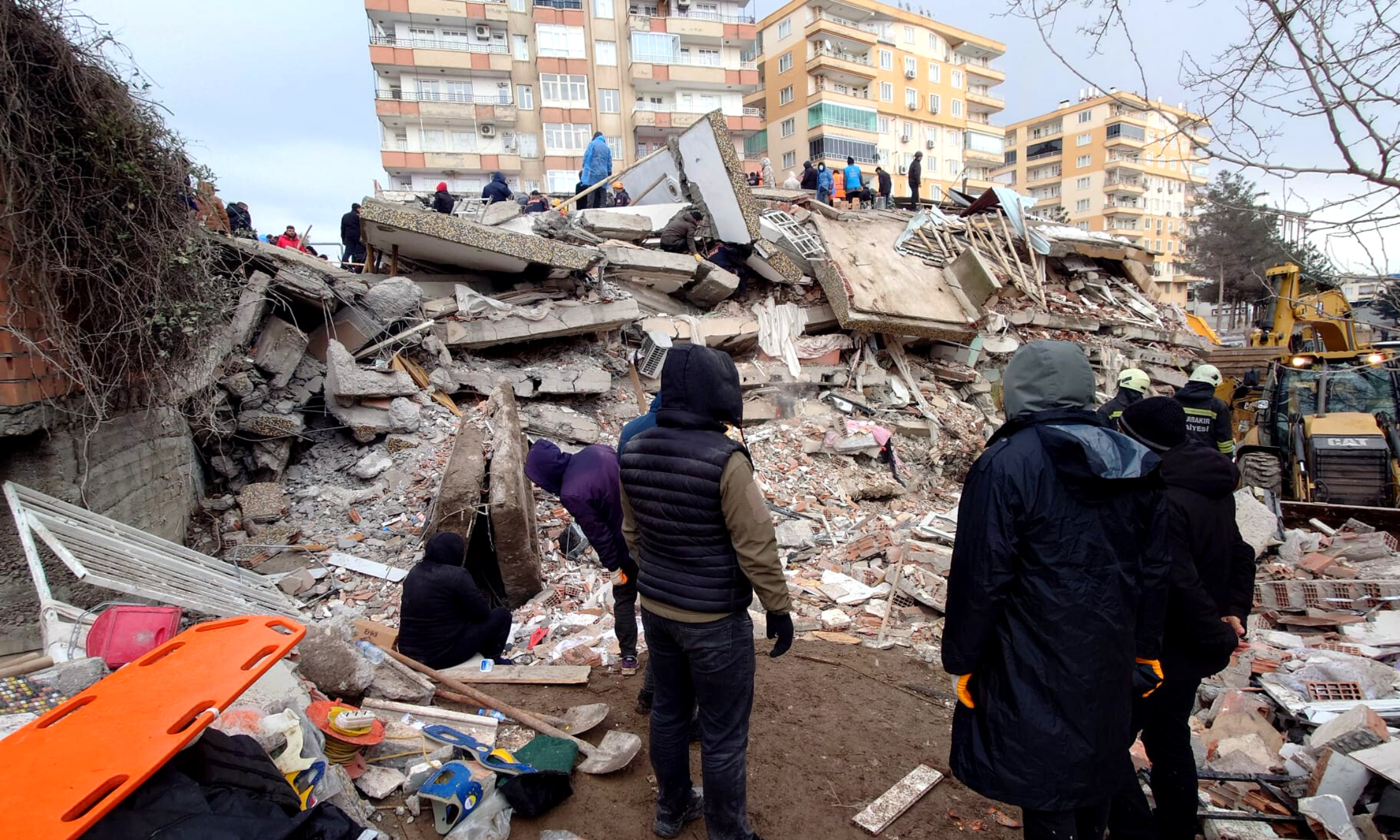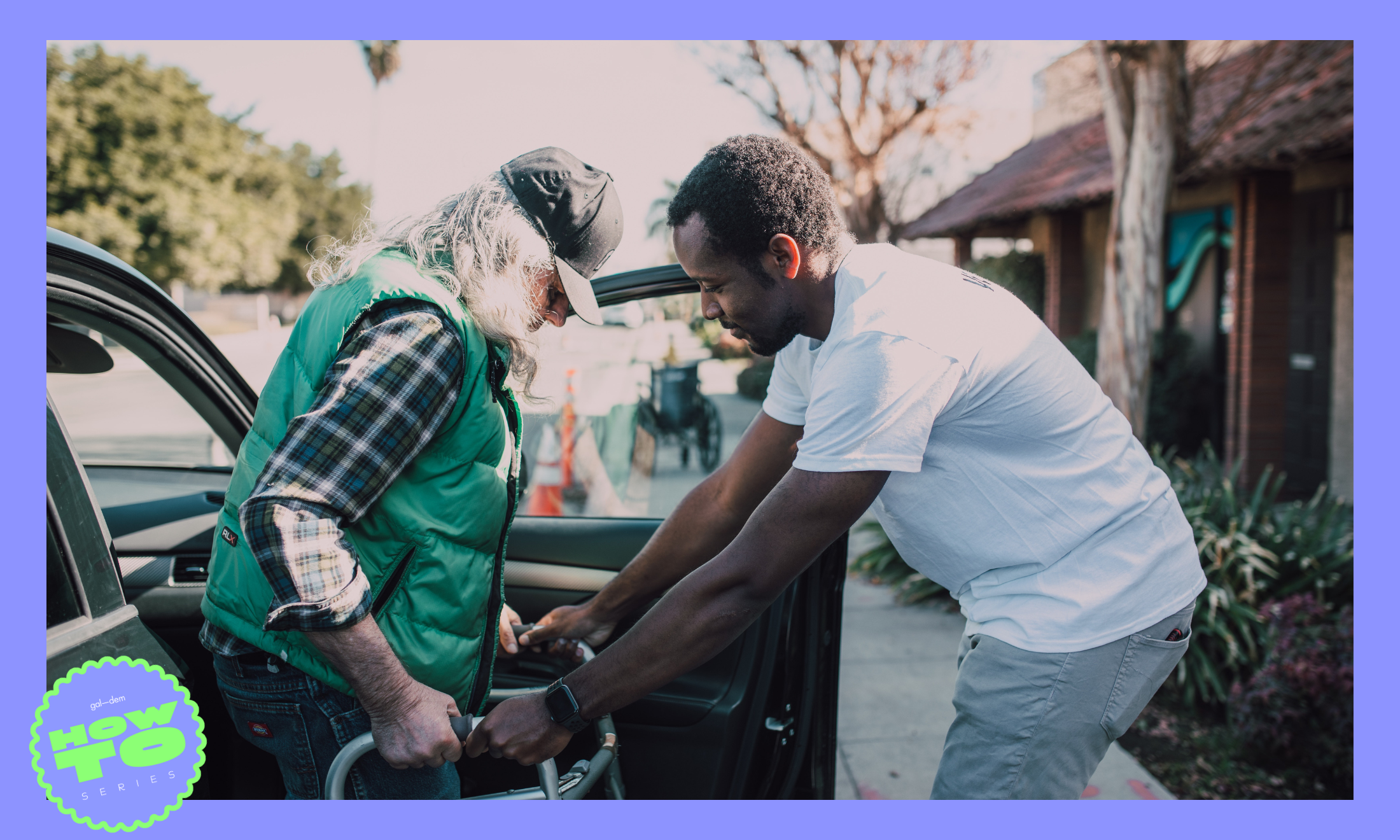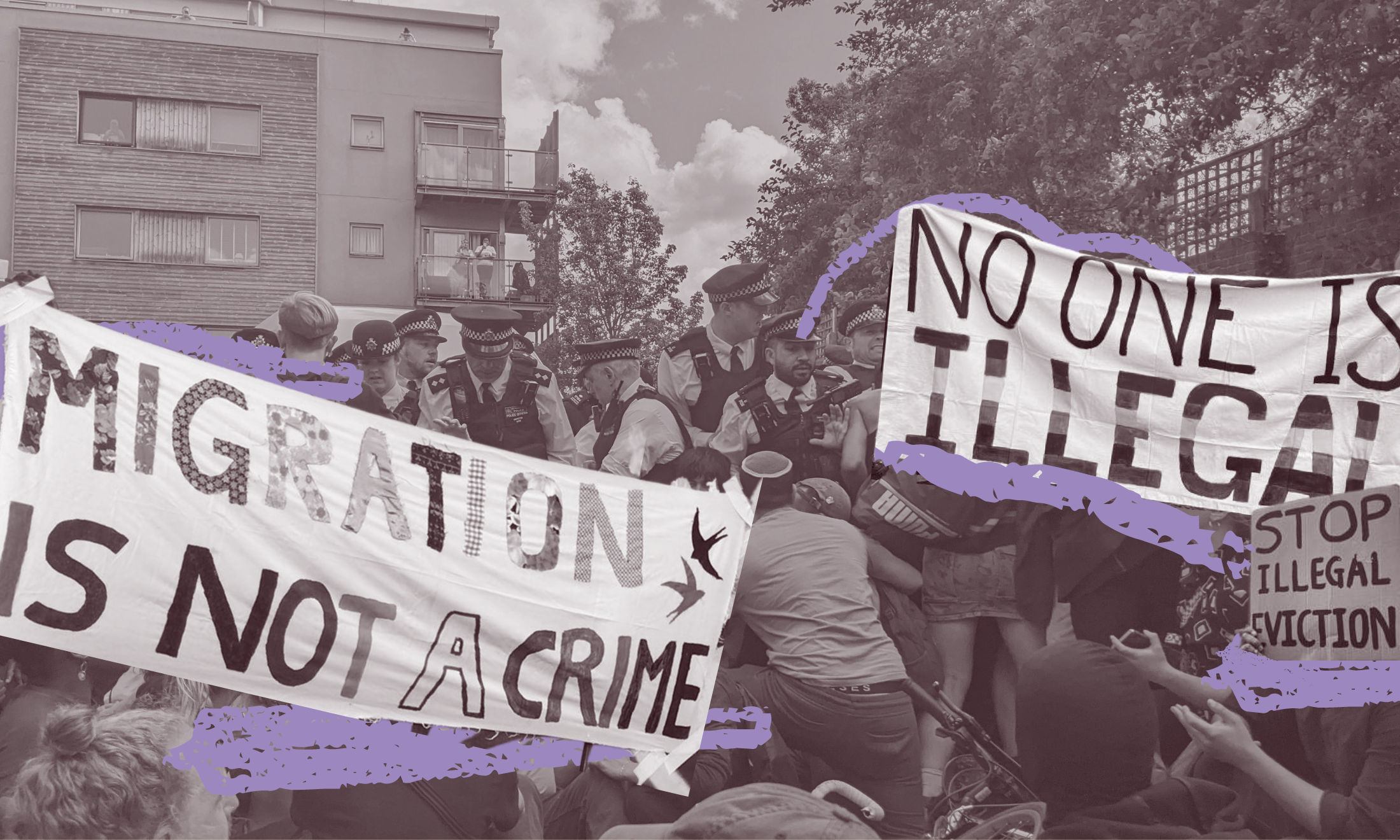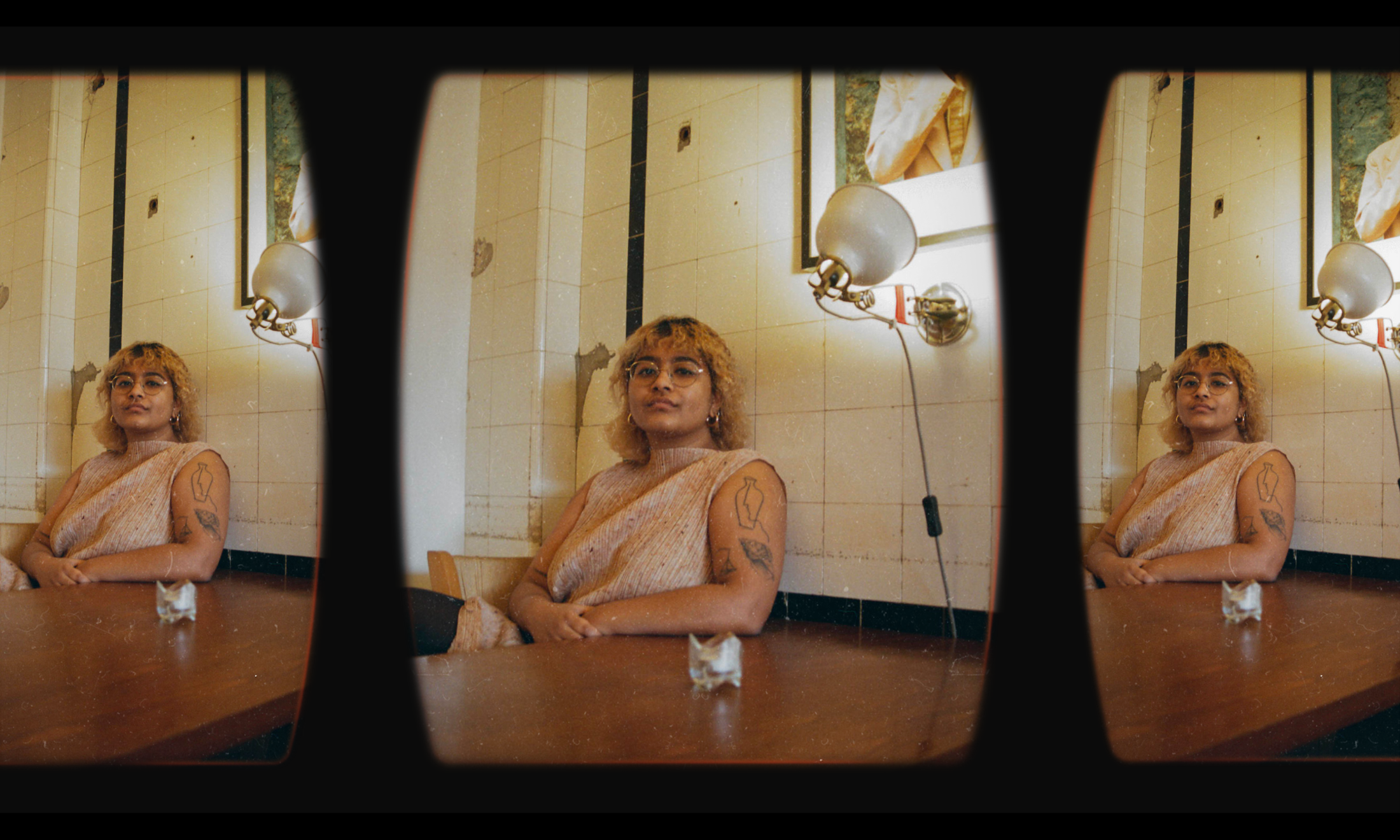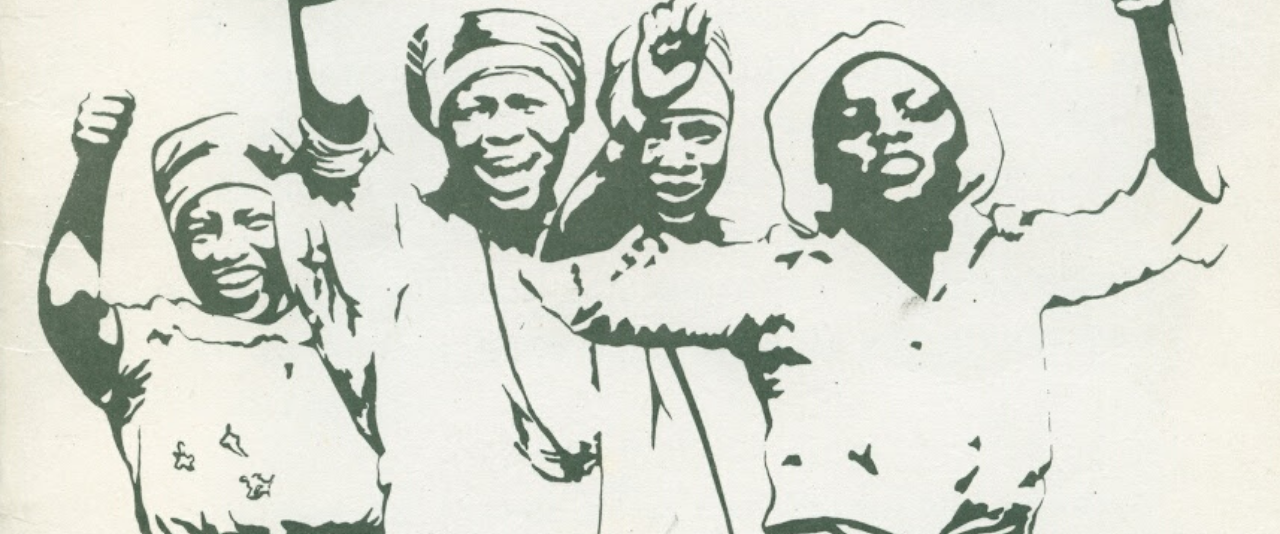
Courtesy of Stella Dadzie / Black Cultural Archives
‘We’ve been organising like this since day’ – why we must remember the Black roots of mutual aid groups
As the black founder of a radical mutual aid group launched in 2018, I am frustrated to see new, white, middle-class mutual aid groups launched during the pandemic bulldozing pre-existing networks.
Eshe Kiama Zuri
05 Jun 2020
Black mutual aid has always existed. We don’t have to look far to see it. We see mutual aid when Black activists and organisers post on Facebook pages, share links to crowdfunding platforms and PayPal accounts, raise call outs and offer support. This takes the form of intergenerational support, disability support, reproductive justice, trans and LGBQTIA+ support. It exists within all the affinity groups, community events and outreach that Black and multiply-marginalised people build to help each other survive. Our mutual aid goes beyond theory and stuffy academic policed practice and into direct action, support and sustainability. We’ve been organising like this since day, creating a world run for us, by us, and to the benefit of all who need it.
Since I was a child I’ve been blessed to be immersed in Black and working class communities that built mutual support and shared knowledge into their activism and ethos. They didn’t always use the buzzword “mutual aid” to name it, but with their centring of family and their inclusive diaspora community focus, they put forms of decolonial mutual aid into practice. Growing up, I also learnt the importance of shouting-back to past groups like the Black Panther Party, Race Today, OWAAD (Organisation for Women of African and Asian Descent) and Black supplementary schools. I also saw how their legacy has been brought forward by current groups in community activism like High Wycombe Community Advocates, African diaspora “pardner” cooperatives like Sankofa 360 and revolutionary projects in the USA like Cooperation Jackson.
My group, UK Mutual Aid, was birthed in late 2018, as a grassroots space on Facebook to support marginalised people, bringing activist-forward, anti-oppression and decolonial education into community building. It also facilitates connection and requests for support. As an organiser and activist, I believe strongly in the importance of creating and nurturing spaces in which we can platform people and culture and raise collective community with a revolutionary focus as a means of protest and survival.
“Pre-Covid-19, mutual aid was something to shun, something to ignore, something to attack and tear down, especially when run by Black people”
White people hate Black mutual aid. That’s a fact. Pre-Covid-19, mutual aid was something to shun, something to ignore, something to attack and tear down, especially when run by Black people. UK Mutual Aid was one of the few mutual aid “named” groups in the UK. Conversations about it outside of our space always resulted in arguments. The idea of sharing with others, especially when suggested by Black people, came as an attack to people’s precious privilige and security. We don’t have to think hard to find the reasons why white people dislike seeing Black people organise – not just together, but for the benefit of all groups affected by white (straight, cisgender, non-disabled, middle-class, financially secure, etc.) supremacist society. Nor to see how this dynamic is equally upheld in white activist spaces that thrive on protecting whiteness and pushing academic, theory-heavy, exclusionary politics.
Sharing UK Mutual Aid with the public has come with a lot of abuse, threats, and a big dislike for the choice to have space where cisgender, heterosexual, white men and women are only allowed into the group to donate. Doing this was a conscious decision – not only to acknowledge that access to state support is easier for privileged people but also to force a conversation about deconstructing white privilege and giving marginalised people the ability to be prioritised.
A big thing that sets us apart is that we focus heavily on financial support, aligning mutual aid with reparations and redistribution of wealth. Separating money from mutual aid is classist, racist and oppressive. It justifies upholding the status quo and keeps money as something that you must “do something” for or “be eligible” to receive, just like how our benefits systems work. A bag full of groceries isn’t going to help a person who also has no cash for gas, electric or rent. Performative “charity”, without challenging capitalism, is not mutual aid, it’s conscience soothing. It allows people to not have to think about reasons why they don’t want to give money, which are deeply rooted in racism, stereotyping, classism, victim-blaming and a lack of access for “undesirable” vulnerable people
Alongside the fight for global and state reparations, UK Mutual Aid raises personal reparations as essential, because white financial security and societal privileges come from the historic and present exploitation of Black people. Financial privilege and hoarding of wealth is neither a goal nor a right. It is gatekeeping survival from oppressed people, and it’s all of our responsibilities to dismantle this. White middle-class theorists can actively try to discourage financial redistribution, but mutual aid in practice has always included financial support and anti-capitalist activism.
Enter Covid-19 and the rise of reactionary white, middle-class and anti-political “mutual aid”. Almost overnight, mutual aid groups sprung up all over the country. This is a good thing, right? Well, not quite.
What we are seeing is basically white people discovering “community” for the first time. And in true coloniser style, it has been declared a new idea. This network of linked groups quickly racked up member counts whilst bulldozing pre-existing, local marginalised community networks – instead of choosing to uplift and work with groups offering mutual aid and support before Covid-19.
“There is a cause for concern when groups claim mutual aid and community support whilst being run and populated by white middle-class people”
Although many of these new groups may be a helpful additional resource, there is a cause for concern when groups claim mutual aid and community support whilst being run and populated by white and middle-class people, landlords, police officers, local councillors and those pushing state agendas – participating in racism, diffusing radical organising and removing and a lack of access for “undesirable” vulnerable people. When you see a mass movement that only comes into existence once the privileged people in society start needing support, then there is really something to question. Where there is a lack of transformative politics, there will not be a chance to build sustainable or supportive environments, especially not in the long term. If we are just fighting for “things to go back to normal” then there is something very wrong. “Normal” killed people, starved people, detained people, oppressed people, and only benefited the few (the few who we now often see running these groups).
UK Mutual Aid has had to adapt too – we now have five Covid-19 threads spanning different areas of support in addition to a donation-funded BIPOC Hardship Fund, a Street Cash Hardship Fund (distributed by activists in Nottingham to people rough sleeping, street sex workers and anyone else in need) and a food parcel scheme with Notts Activist Wellness and a local charity for people with no recourse to public funds. These are projects that other mutual aid groups across the country could also be running with local groups, organisations and charities and which we’d love to see and support.
Going forward, who knows? This is a tumultuous time that could have been the catalyst for radical and revolutionary community organising. But instead, it has been mostly whitewashed and appropriated — with Black, Brown and marginalised people left fighting for everyone still left behind by this new and toxic sense of white “community”. With Black people four times more likely to die from Covid-19, a heightened racist police state and the sudden surge of white performative actions and attempts to try to take over Black rights movements, we’re shown that whilst the Black struggle is on people’s lips, it’s still not with our best interests at heart. Only we can know what those are. It’s as important as ever for us to be there for our community, to build within, and for white “communities” to take a step back, listen and learn.
This one is for the Black women and non-binary people who have carried our communities on their backs with no appreciation. Mutual aid came from you. Thank you. Ase.
***
There is amazing work being done by grassroots and activist groups to help people through the difficult times we are in right now. Whilst not all of these are Black-run, they are all run by groups actively participating in anti-racist work: SWARM Hardship Fund for sex workers, the QTIBIPOC Emergency Relief Fund, and the Queercare network of local support and resources. London Renters Union are doing great work with unionising renters, whilst Solidarity Apothecary, Unis Resist Border Controls, CAPE (Community Action on Prison Expansion) and SYMAAG (South Yorkshire Migration and Asylum Action Group) are groups doing work with people who are in prison and detention, asylum seekers and migrants. Resourcing Racial Justice has a UK-wide fund for organisers and groups. BLMUK is providing resources and support for groups across the UK and has a fundraiser running currently.

